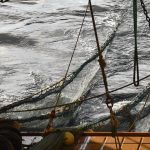Ineffective fishing management programs of these seaside areas have compelled the fishing communities of these regions- Georgia, Florida and the Carolinas, to earn their bread after hard work. The management programs includes fish size limits and short fishing seasons — that have failed to recover fish populations and forced fishermen out of business.
Rep. Walter Jones, R-N.C., said that their region’s fishery managers are exploring solutions to reverse this downward spiral. He has championed a federal budget amendment that has road blocked this progress. Currently, federal fisheries law called the Magnuson-Stevens Act charges regional fishery management councils, made up of local stakeholders in each regional fishery, with the authority to set and oversee management of these resources.
Unfortunately, if this roadblock persists and change is delayed, things will get worse for our commercial fishermen. To restore sustainability, federal fishery managers in our Southeast region and across the nation have turned to new management systems called catch shares, or individual fishing quotas, or IFQs. Catch shares work by dividing a sustainable, scientifically set amount of the fish allocated for commercial harvest, among individual fishermen as “shares.”








